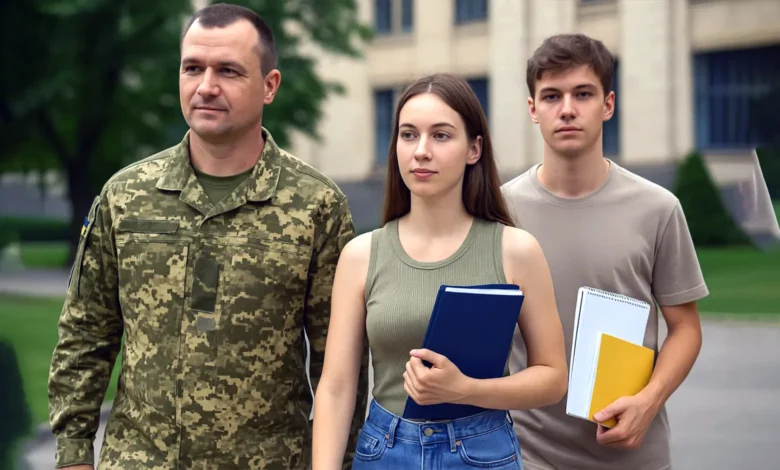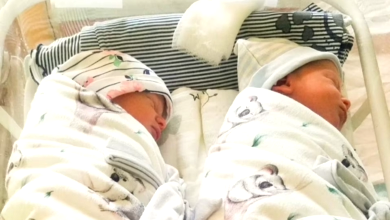Educational benefits for children of military personnel: how the system works and what you need to know when applying

With the start of the 2025 induction campaign, the question of what benefits are provided for the children of military personnel, in particular, combatants, is once again becoming relevant for many Ukrainian families. The legislation of Ukraine provides targeted support to both defenders themselves and their children, if they study or plan to enter professional (vocational-technical), professional pre-higher or higher education institutions. The mechanism of this support is provided by the Law of Ukraine “On the Status of War Veterans, Guarantees of Their Social Protection”, and the practical implementation depends on the type of education, the form of admission, the age of the child and individual decisions of the management of the educational institution. However, in practice, access to these benefits requires a clear understanding of the legislation, the procedure for submitting documents, and the limits of the opportunities provided by the status of a child of a military serviceman or veteran. So let’s consider what exactly this support entails, who is entitled to it, and how to confirm and implement it.
What is state targeted support in the field of education
According to the current legislation, targeted support is a set of measures that allow children of certain categories to get an education in state or communal institutions for free or on preferential terms. These measures include:
– full or partial coverage of the cost of education at the expense of budget funds;
– preferential long-term loans for education;
– social scholarships;
– free provision of textbooks;
– free access to the Internet and educational databases in institutions;
– free accommodation in hostels.
The decision to provide one or another form of support is made by the head of the educational institution based on the submitted documents.
Who is entitled to educational benefits
Children of several categories of servicemen are entitled to educational benefits:
– participants in hostilities;
– persons with disabilities due to war;
– prisoners of war after release;
– children of prisoners of war who died (died) in captivity.
These benefits are provided until the completion of studies at an educational institution, but not longer than until the child reaches the age of 23.
Important: if the child of a military serviceman does not have the appropriate confirmed status (for example, the status of UBD or a person with a disability due to war), he cannot expect to be transferred to a vacant budget place. Such an opportunity is given only to the children of war veterans — and only if there are free budgetary places after the enrollment of entrants who took higher positions in the ranking list.
What educational benefits are available to children of combatants
The state guarantees a set of measures that should facilitate access to education. Among them: full or partial payment of education from the state or local budget, preferential loans, social scholarships, free textbooks, free access to educational electronic resources and accommodation in dormitories. These benefits can only be applied if clearly defined conditions are met.
For children of combatants, the main prerequisite is age under 23 and full-time education. Individuals who study part-time, or who are over 23 years old at the time of admission, are not subject to the relevant provisions. It is also important to know that benefits are not automatically extended to all children of military personnel — documentary proof of status is required, as well as compliance with the specific procedure described below.
The education of a child of a combatant involves standard entrance exams, without special conditions. However, there is a possibility of transferring from a contractual form of education to a budgetary one – if there are vacancies and certain conditions are met. In particular, such a child must be enrolled on the contract without receiving any budget recommendation, and there must be an available budget space on the ranking list after enrollment of higher priority entrants. If the applicant received a recommendation for the budget according to one of the lower priorities, but refused it and entered into a contract, preferential transfer will no longer be possible. In 2025, the deadline for transfers to vacant budget seats is August 18.
A separate direction of state support is the system of long-term preferential loans for education. Such a loan is granted for a period of 15 years at 3% per annum. Repayment involves equal distribution over 15 annual payments, although the law does not prohibit early payment. In some cases, a partial or full exemption from loan and interest payments is possible. For example, a student is exempted from payment if he has a disability of the 1st group. Also, the loan is canceled if the graduate works for at least 5 years in a rural area in a state institution after completing his studies.
A flexible system of discounts is provided for families with children: full exemption from paying interest for parents of one child; 75% discount on the main amount of the loan — for parents of two children; 50% for those who have three or more children.
To take advantage of this opportunity, it is necessary to go through the standard admission procedure (complete the NMT or pass an interview), submit an application to the admissions committee about the desire to study with a soft loan, conclude an agreement with the educational institution and contact the bank with it. Without this, the loan will not be issued.
Another way of support is a social scholarship. It is assigned if the student is studying on a budget basis, but has not scored enough points for an academic scholarship. The size of the social scholarship in 2025 is:
– 1,180 hryvnias per month — for students of higher education institutions;
– 890 hryvnias per month — for students of vocational colleges.
To apply for this scholarship, it is necessary to apply to the administration of the educational institution with a written application and a copy of the military service certificate of one of the parents. It is important to remember: the social stipend is paid only if the child has a valid status as a participant in hostilities and studies on the budget.
Application procedure
In 2025, the admissions campaign for all categories of applicants will be conducted mainly through the electronic system. Applications are submitted online through the Unified State Electronic Database on Education (UEDEBO). During registration, the applicant creates an electronic account, where he enters his data, uploads a photo and specifies contacts for communication.
However, there are a number of exceptional cases when the application is allowed to be submitted in paper form. This is possible if:
– the entrant is in the temporarily occupied territory;
– for technical reasons, it is impossible to create an electronic cabinet;
– documents received abroad or before the introduction of new technologies;
– the person has the status of a refugee or a stateless foreigner;
– submission takes place outside the established time limits.
In such cases, the entrant must apply to the admissions committee with an appropriate certificate on the existence of grounds for submitting an application in paper form.
When creating an office, the entrant must specify:
– e-mail address (it will be a login for login);
– series and number of the document on education;
– data of the NMT certificate or examination sheet of ZNO/EVI/EFVV;
– passport data or identification code;
– contact telephone numbers;
– a digital photo up to 1 MB in size.
In addition, it is necessary to download a motivation letter. Its format is not regulated, but it is a mandatory attachment to every application.
How to confirm the right to benefit
To receive an educational benefit, a child of a military serviceman must submit two documents to the educational institution:
– a copy of the birth certificate;
– a copy of one of the following documents of the father or mother: a certificate of a participant in hostilities, a certificate of a person with a disability as a result of war, a certificate of stay in places of imprisonment as a result of armed aggression.
These documents are enough. There is no need to contact the territorial picking center for additional confirmations. The submission can be made in person or by e-mail (if the institution has the technical ability to accept documents in digital form). It is currently impossible to submit documents through the entrant’s electronic account – such a function is not technically provided.
Thus, the system of educational benefits for children of combatants is a set of specific mechanisms, the implementation of which requires the initiative of the family itself: timely submission of applications, collection of supporting documents and observance of admission deadlines. Without this activity, the state cannot automatically apply the benefits provided by law. But for those who understand the procedure and carefully follow the procedure, such support is real and effective. It allows not only to reduce the financial burden on the family, but also to make education more accessible, even in difficult circumstances.





